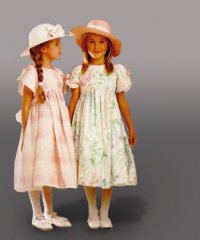2011年中考复习:被动语态专题(2)
9.将来完成时will have +been+V(p.p)
The students will have learned 2,000 words by the end of next year. 2,000 words will have been learned by the end of next year. Will 2,000 words have been learned by the end of next year? Yes, they will./No, they won’t.
10. 过去将来完成时would have +been+V(p.p) He told me that Mr. Brown would have taught them for two years by the next summer. I was told that they would have been taught by Mr. Brown for two years by the next summer.
注:1.含有情态动词的谓语变成被动语态时,用“情态动词+be+V(p.p)”构成。如: You must operate the machine with care. The machine must be operated with care. Must the machine be operated with care? Yes, it must. / No, it mustn’t. 2.含有“be going to”, “be to”等结构的谓语,变成被动语态时,分别用“be going to +be +V(p.p)”和“be to+be+V(p.p)”。如: We are going to discuss the problem at the meeting. The problem is going to be discussed at the meeting. Is the problem going to be discussed at the meeting? Yes, it is. / No, it isn’t. 3.被动语态除常用be加过去分词构成外,还可用“get+过去分词”结构。这种结构多用在口语中。如: The boy got hurt when he was riding to school. 4.被动语态没有完成进行时态,也没有将来进行时态,如果要将这些时态的主动结构变为被动结构,可以用完成时态或一般将来时态来表示。如: 他已被检查过了。He had been being examined. 通常用He has been examined.来代替。
当我们到那儿时他将正被检查。He will be being examined when we get there.通常用He will be examined when we get there.
注:Get+过去分词也可以构成被动语态,用这种结构的句子侧重于动作的结果而不是动作本身。如: the man got hurt on his way home. 那个男人在回家的路上受伤了。 Mary is going to get married. 玛丽准备结婚了。 How did the glass get broken? 杯子怎么破了?
著名学者周海中教授在论文《Get-Passive研究》中指出:Get+过去分词是一种新兴的被动语态形式;目前,相对来说它的使用还没有Be+过去分词那么广泛,一般限于口语和非正式书面语;但它却有着用得愈来愈多的趋势,是一种生气蓬勃的语言现象。
三、被动语态的几种句型 将主动语态转换成被动语态,通常分以下四步进行: 1.将主动语态中的宾语转换成被动语态的主语。 2.将主动语态中的动词改为“be+V(p.p)” 3.原来主动语态中的主语,如果需要,放在by后面以它的宾格形式出现,如没有必要,可以省略。 4.主动语态中的其他句子成分不变。 由于主动语态结构的不同,因而转换成被动语态的方式也各有不同,现分类说明如下: a.由及物动词形成的被动语态:
相关文章
- 2011年寒假高一语文复习建议
- 北京市2011年中考数学考试说明
- 中考数学需要重视的七大问题
- 备战2012中考:新初三生如何学好数学
- 2011年高二英语寒假学习经验分享
- 2011年高二生物寒假学习规划
- 一模考试分析及中考数学复习策略
- 轻松备战中考 优等生的六先六后复习原则
- 2011年高考物理复习两大技巧
- 初三学生复习指导 中考状元的10个秘诀
- 2012年中考指导:初三生如何学好语文
- 保证质量 中考复习四步走
- 2011高考数学复习处理好七大关系
- 2011年高二数学寒假学习规划
- 名师详解:中考中的图形变换
- 备战2012中考:新初三学生如何才能学好物理
- 中考名师:数学复习的四个“轮回”
- 必胜宝典:尖子生学习十大复习技巧
- 2011高考物理复习策略相关七问题
- 炼成中考状元的10个关键点
推荐内容
教育新鲜事
 "超级网虫"形成与良性引
"超级网虫"形成与良性引